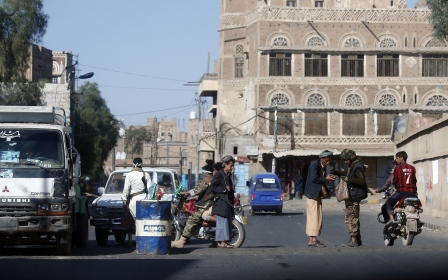UN still short of funding target needed to rescue decaying tanker off Yemen's coast

The United Nations (UN) says it is “confident” that it will be able to prevent the break up of a decaying super tanker moored off the coast of Yemen.
The organisation has been raising funds to carry out a rescue operation and prevent what experts warn could be an environmental disaster in the Red Sea, but they have not yet met their target.
As of September the UN has raised $68m in pledges to repair the rusting oil tanker, though only about $10m of the total funds have actually been handed over. The UN has an $80m target.
$33 m was raised in May at a pledging event in The Hague from a combination of nine European governments, Qatar, and the European Union. The following month, Saudi Arabia said it would donate $10m.
The decaying 45-year-old ship named FSO Safer, long used as a floating storage platform and now abandoned off the rebel-held Yemeni port of Hodeida, has not been serviced since Yemen was plunged into civil war over seven years ago.
Stay informed with MEE's newsletters
Sign up to get the latest alerts, insights and analysis, starting with Turkey Unpacked
A million barrels
A rupture of the vessel, which contains more than one million barrels of light crude oil, would be four times the size of the Exxon Valdez oil spill of 1989 and cost $20bn to rectify, environmentalists warn.
An oil spill would compound the existing humanitarian crisis in Yemen, where Iran-aligned Houthi rebels and a Saudi-backed government have been at war.

A spokesperson for the UN warned in August about the threat of rupture with winter approaching.
"The volatile currents and strong winds from October to December will only increase the risk of disaster. If we don't act, the ship will eventually break apart and a catastrophe will happen. It's not a question of if, but when."
Yemenis are already suffering from what the UN has called the world’s worst humanitarian crisis.
The country has been pushed to the brink of famine and more than two-thirds of its 30 million population are in need of aid.
Recently, the organization has turned to crowdfunding in a last-ditch attempt to obtain the remaining funds.
Hollywood actor Leonardo DiCaprio even weighed in on the issue earlier this summer in a bid to raise awareness.
In August, Yemen’s HSA Group, the country’s largest private company pledged $1.2m to the UN for the operation citing its concerns about a “large funding shortfall” and shrinking window of time to prevent the vessel’s break-up.
The UN now says it is “looking closely at how to reduce costs of both the emergency operation and the installation of long-term replacement capacity for the [FSO]Safer."
A spokesperson for the UN told Forbes: “we are confident that we will receive the target amount soon”.
Although they added that “we still need donors to disburse the funds that they have pledged”.
Middle East Eye delivers independent and unrivalled coverage and analysis of the Middle East, North Africa and beyond. To learn more about republishing this content and the associated fees, please fill out this form. More about MEE can be found here.




